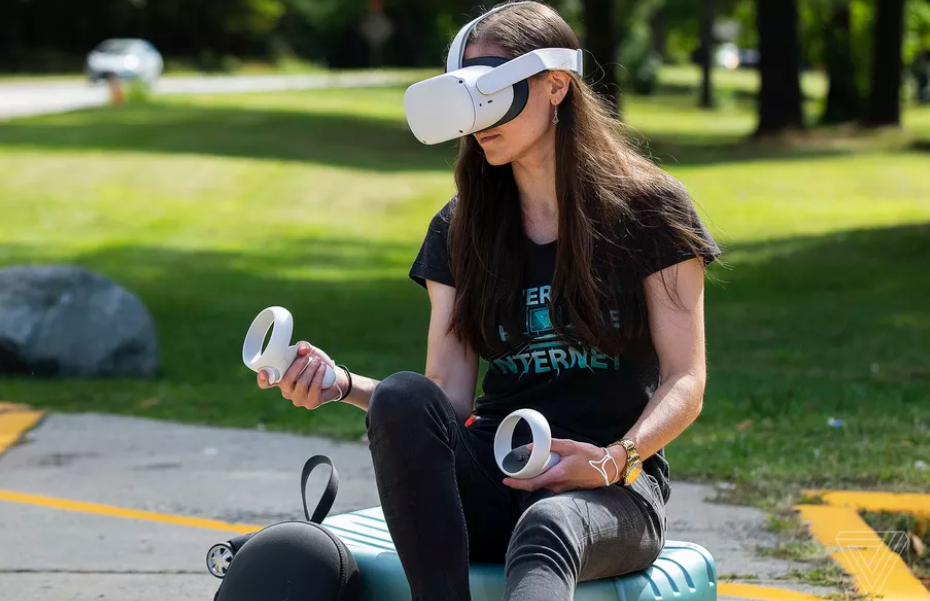
Germany’s competition watchdog is investigating Facebook for tying its social app to its Oculus virtual reality headsets. Today, the Bundeskartellamt or Federal Cartel Office (FCO) announced a probe of the increasingly close link between Facebook and Oculus, arguing that it could hurt competition in both VR and social networking.
The new Oculus Quest 2 headset requires signing in with a Facebook account rather than a separate Oculus ID, and that’s raised antitrust concerns. “Linking virtual reality products and the group’s social network in this way could constitute a prohibited abuse of dominance by Facebook,” said FCO president Andreas Mundt. Mundt noted that Facebook is a dominant social network in Germany and plays a large role in the emerging VR market. “We intend to examine whether and to what extent this tying arrangement will affect competition in both areas of activity.”
Facebook halted the original Quest’s sales in Germany earlier this year, citing regulatory concerns. “While Oculus devices are not currently available for sale in Germany, we will cooperate fully with the Bundeskartellamt and are confident we can demonstrate that there is no basis to the investigation,” a spokesperson tells The Verge today.
Oculus reportedly faces scrutiny in the US as well but on different grounds. Last week, Bloomberg reported that Justice Department antitrust investigators were talking with Oculus app developers, following accusations that Oculus cloned smaller companies’ apps and favored its own alternatives. Facebook sells the popular Oculus Quest 2 VR headset, controls app developers’ access to its official store, and has developed and acquired several popular VR games and apps. That includes the virtual social space Horizon, which competes with smaller independent apps like Rec Room and VRChat.
The US Federal Trade Commission and 48 state and regional attorneys general sued Facebook for monopolistic behavior yesterday, although that suit doesn’t cover Facebook’s VR efforts. The FCO also has a separate pending case against Facebook. In 2019, it ordered Facebook to stop combining user data from different sources without consent. However, Facebook lodged an emergency appeal, and a hearing is scheduled for March 2021.
Facebook’s decision to link Oculus hardware with Facebook has rankled users. The company acquired Oculus in 2014. But until recently, users could sign in with separate Oculus IDs, which didn’t require creating a public-facing social profile. Following the Oculus Quest 2’s launch, it started requiring Facebook logins to use new hardware, and some users temporarily lost access to their headsets after being mistakenly banned. Facebook hasn’t indicated plans to reverse the decision, but it’s now facing official pressure to change its rules.





























